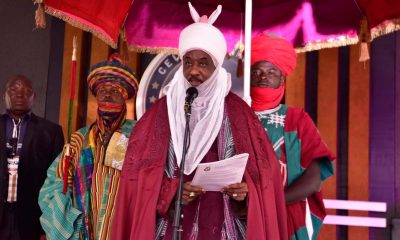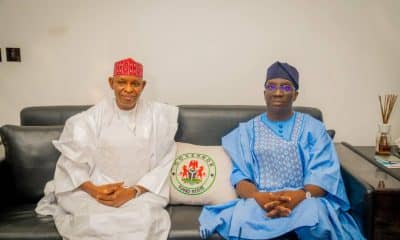Nigeria News
Ganduje Blames Other Northern Governors For Inability To Reform Almajiri System In Kano

Kano State Governor, Abdullahi Ganduje has laid the blame for his inability to implement reforms in the Almajiri system in Kano at the feet of other northern governors.
Ganduje submitted that the influx of Almajiri children into Kano State from other neighbouring states has made it difficult to implement planned reforms on the system in Kano.
He said while he was doing his best to reform the Almajiri system, the nonchalant attitude of other northern governors has made the process difficult.
The Kano Governor made his mind known on the matter during an interview with newsmen at the Government House as part of activities to mark this year’s Democracy Day.
In his words, “Unfortunately, most of the northern governors have not enacted any legislation on the Almajiri issue, which is actually causing a lot of setbacks in actualizing our dreams of addressing the challenge.”
Ganduje also denied claims that the previous administration left N9 billion pension and gratuity funds in the state coffers for him, rather noting that what he inherited was N4 billion unpaid gratuities and pension.
Ganduje said, “I met an arrangement with pensioners’ money being used to build houses at Kwankwasiyya and Amana Cities.
“Because of this problem today, we cannot settle the liabilities incurred from the housing scheme, nor can we settle pension and gratuity because of the financial difficulties we found ourselves in.”
In other news, there is a clash between two federal government agencies – the Economic and Financial Crimes Commission (EFCC) and the Asset Management Corporation of Nigeria (AMCON) – over some recovered assets.
It was gathered that the assets causing frictions between the two agencies are those recovered from and forfeited by some allies of a former Minister of Petroleum Resources, Diezani Alison-Madueke.
The House of Representatives’ Ad Hoc Committee on Assessment and Status of All Recovered Loots Movable and Immovable Assets from 2002 to 2020 by Agencies of the Federal Government of Nigeria for Effective Efficient Management and Utilisation is currently being tasked with resolving the crisis.










